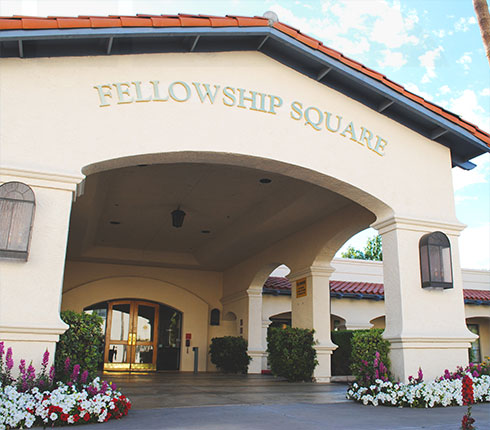10 Myths about Aging
As people age, they or society, in general, may take on some assumptions about them. There are many myths about aging or elderly people that simply aren’t true. Fellowship Square debunks the myths about aging that should never be assumed about senior citizens.

Myth: “Old people have ‘old ways’ of thinking.”
Truth: Every individual – young and old – has his or her own unique thoughts and feelings about society. It’s an unfair blanket statement to assume that every person over (or under!) the age of 60 has the same beliefs. Taking some time to speak with elderly people about their thoughts about the world – and their own past experiences – can shed some light on this truth.
Myth: “People lose their memory as they age.”
Truth: Not every aging person experiences memory loss diseases such as dementia or Alzheimer’s. According to Psychology Today, only 6 to 8 percent of people over the age of 65 have been diagnosed with dementia.
Myth: Genetic health conditions can’t be avoided as people age.
Truth: While it’s true that genetics play a certain role in each person’s body and health, health and wellness is largely in the hands of each individual. Eating right, getting enough exercise and rest all contribute to healthy aging.
Myth: Elderly people are less adaptable to change.
Truth: This is a personal preference – some people enjoy the newness and thrill of change, while others may be more apprehensive about change. However, this is not an age-related issue. Elderly people have faced countless challenges and situations of change by the time they reach a certain age, so while they may be a bit slower to adapt, they are certainly capable of change.
Myth: Elderly people are less adventurous.
Truth: There are many elderly people who have waited their entire lives for the opportunity to be in retirement so they can travel the world and see new things.
Myth: People become less productive as they age.
Truth: Retirement doesn’t mean elderly people just want to sit around all day! While at a certain age and depending on health concerns, some elderly people may need to rest more throughout the day, many people of retirement age enjoy active lives, help with care for their grandchildren and volunteer. A report by the Bureau of Labor Statistics reports that 24% of senior citizens volunteer throughout their retirement years.
Myth: People are less creative as they age.
Truth: Many people take up hobbies or crafts in their senior years that actually lead to a second career and/or income. Whether its woodworking, art or knitting, creative activities keep seniors’ brains and dexterity sharp.
Myth: “Old people are crabby or depressed.”
Truth: Depression is a real, diagnosable disease, not a feeling that can be used as a blanket statement. There is no evidence that shows that older people are crankier – people that are generally “crabby” in their younger years may continue that way. People that choose to be happy, usually continue that mindset into their golden years. It all comes down to attitude.
Myth: Elderly people are lonely.
Truth: The loving, caring environments of retirement communities and assisted living facilities such as Fellowship Square intend to make their residents feel at home and offer a vast social calendar of activities to keep seniors interactive with their neighbors. Many elderly people have kept an active social life and now that they have more time in retirement, actually have a very busy calendar.
Myth: “Old people are incompetent.”
Truth: Elderly people that continue to challenge their brains, exercise their bodies and feed their soul with religion and spiritual beliefs are perfectly competent into their senior years. Even as they age and experience some memory loss or dementia, many elderly people retain abilities to understand, make rational decisions and participate in and simply enjoy life!

